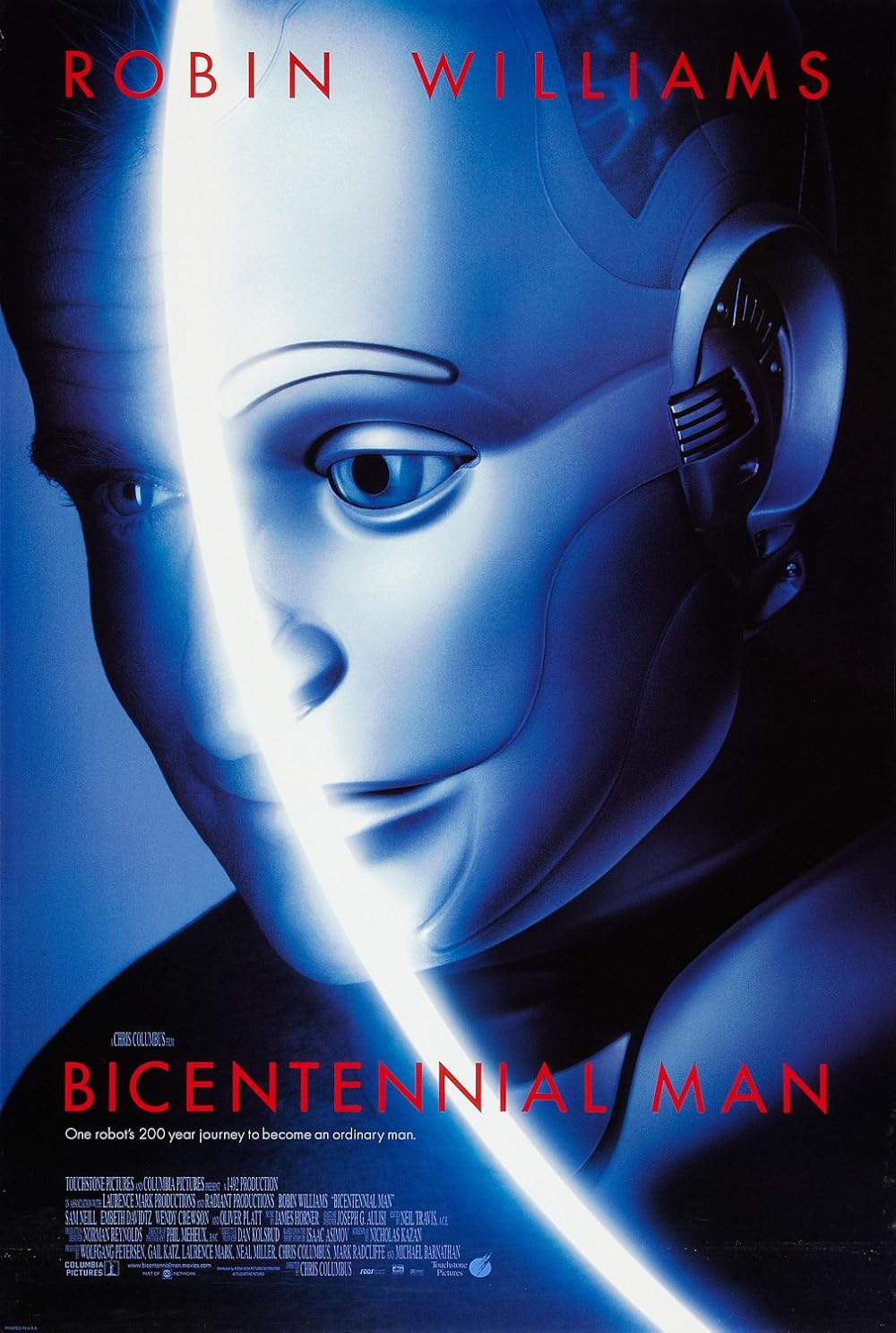Is subscription-based life sustainable?
We see subscriptions all around us! Subscriptions are everywhere - from applications, blogs, YouTube, to devices, and even underwear! But, where does it end? The subscription-based model might be a sustainable one for products nowadays, but is it sustainable for our Planet?

Listen to me read this post here (not an AI-generated voice!) or subscribe to the feed in your podcast app.
Recently, I had an opportunity to watch the movie Bicentennial Man with Robin Williams, one of my favourite actors. It is based on a novelette by Isaac Asimov from the Robot Series, and it is about an android that has human characteristics - he can feel sadness, happiness, enjoyment in his work, etc.
The story goes on, and the movie is quite nice. It seems like a feel good movie to me, and it led me to think about one important question. And, it is not the most obvious question asked throughout the whole movie - can androids (or AI) replace humans in some near future. Nope. But you can probably guess from the title what was the question that I asked myself.
There is a scene in the movie where Android - Andrew, falls from the window and gets broken. It then enters the house and says to its worried owner something like - I have a self-maintenance mode, I can repair myself. Then goes into the basement, and fixes its broken self. And this is where I thought - well, that wouldn't work in today's subscription-based model world, right? So, the question that got me thinking was the one about the longevity of (these) devices.
The movie was released in 1999, 26 years ago. Not that long ago, at least from my perspective. But from that time, a lot has changed. The world has changed. The subscription-based model became sort of a norm for selling many products and services.

What is a subscription-based model?
Subscription-based model is quite present in our lives. It represents a strategy where customers pay a recurring price at regular intervals to access a product or service. According to Wikipedia it dates back from 17th century!
I come from Serbia, where, in those days, every tech-related breakthrough was delayed a couple of years. Thankfully. So I remember the dial-up internet, for example, and how we used to create configurations when buying a computer. It was a list of hardware devices - processor, motherboard, storage, CD-ROM, case, etc - that we bought and assembled into a working computer. Later in life I discovered that I can put Linux on those devices as well, but that's a story of its own.
When I look back now, it was a great learning experience, and for sure one of the main ways that got me, and a bunch of other people, into technology. Whenever something broke, and we thought we could fix it - we tried to. Seldom was it fixed, but we tried it nevertheless. Nowadays, you'll break the device just by trying to open the case that holds it.
Why I feel like that meme - old man yelling at the clouds? Never mind.

It makes sense to me that the subscription-based model is one way to sell services, but why do we need to put everything under some subscription? Why do we need a subscription that allows us to use certain devices? Are we then actual owners of these devices, or just users of them?
For some devices, I think we're actually users, and this I learned the hard way. Let me share what I experienced with you.
Do we own our device now, or are we just users?
Quite a while ago, I bought an Amazon Kindle 4. It is a model from 2011, and I think I bought it somewhere around 2012, 2013, from a local reseller in a technology-deprived Third World country. I was only able to read PDFs and certain Amazon-specific file formats (.mobi and .azw2). That didn't bother me at the time, because I was able to convert easily between the formats, so I didn't mind. I used it quite a while, and I think I read the whole Wheel Of Time series on this device.
Recently, I learned that Amazon decided to remove the option to download your Kindle books, and this is where I lost it. But in a good way! First I copied all my books on my laptop, disconnected Kindle from the internet, and unregistered the device from Amazon. Then, I decided to jailbreak it. In other words - remove the restriction to install software on a device that is not official.
So I spent a couple of hours in jailbreaking my Kindle, and I was finally able to read different format on it without any conversion! I can share the instructions I used, let me know in the comment section below if you're interested.
You might ask yourself - why didn't I just continue to convert books to Kindle formats? Well, first, I didn't want to. Second, I wanted to tinker with it and make it work to suit my needs, not the needs of some big corp.
How I discovered I wasn't the actual owner but just the mere user of it?
When I re-connected the Kindle back to the internet. I wanted to send some books to it and when I connected I got the message that the application I installed is locked and that I can't use it any more. I can only use the Kindle-specific formats again. Not only that, but I was amazed to what extent they decided to protect themselves. Never mind, I'll go on and jailbreak my Kindle again, and use it without the internet access. Books don't have access to the internet, why should I have it on Kindle?
Summary
So, is the subscription-model any good? Maybe for the services, but I think it shouldn't apply to devices. Devices should be a one-time purchase, and you shouldn't subscribe to get more storage, memory, speed, better car extensions and whatnot.
In an ideal world you should be able to buy a device and actually own it, be able to repair it and not forced to buy a new one when the old one breaks. You should be able to use a standard and open formats on them, not only device-specific ones.
Okay, I get it, we're all greedy, we want to make more money. But, is that really a sustainable way? In the short run - maybe - you earn more money, ergo you're sustainable. But what about in the long run? Is this really the best option for us?


